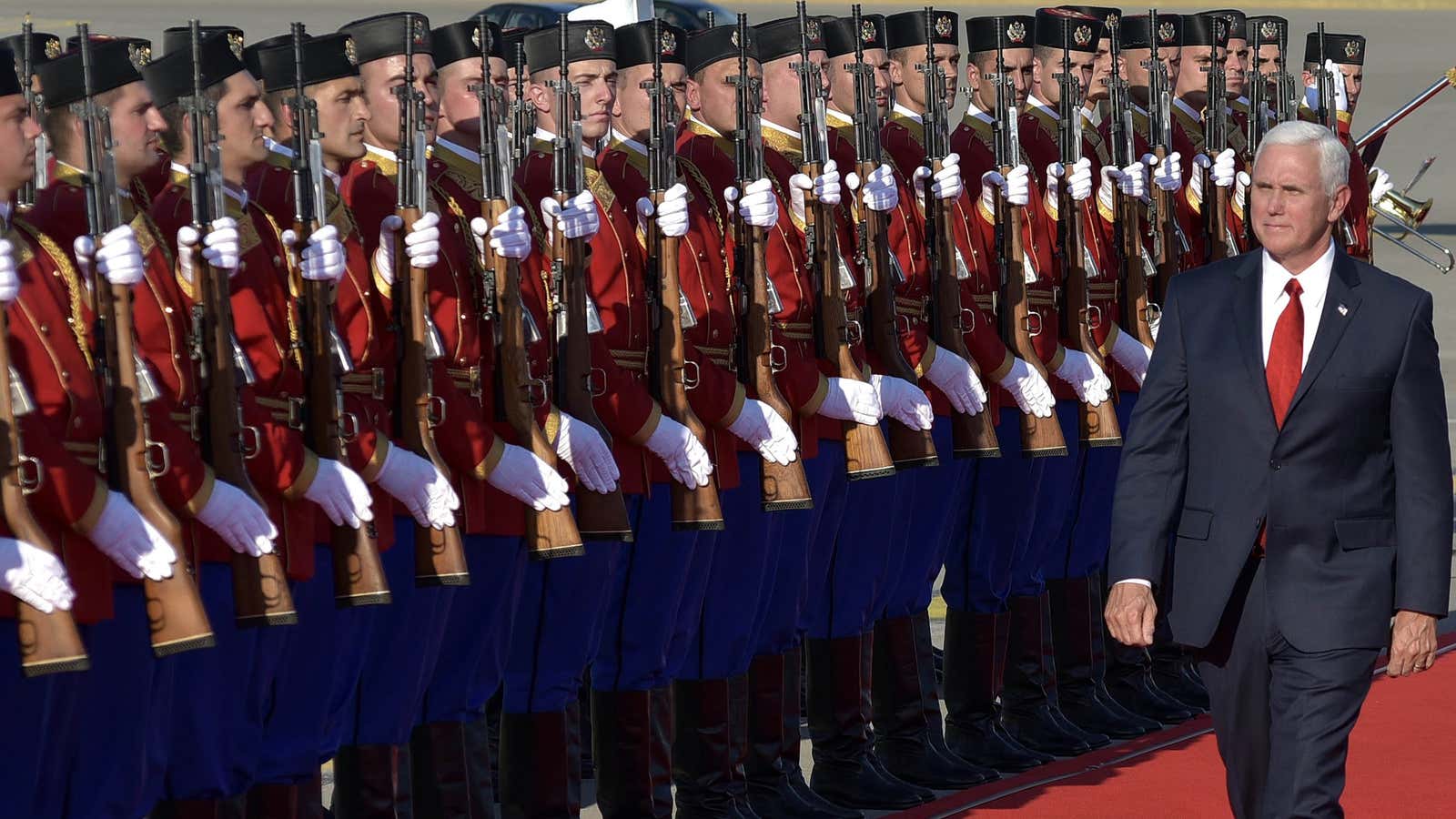US vice president Mike Pence and his Republican colleagues in Congress seem to be working in tandem to constrain president Donald Trump over Russia.
Last week, only five out of 535 members of Congress voted against a bill designed to nix any chance of Trump cozying up to the Kremlin, by taking away his power to relieve sanctions on Russia without Congress’s say-so. The majority was so enormous that, despite a few days’ hesitation, Trump had no choice but to sign it into law on Aug. 1.
At the same time, his number two has been touring Eastern European allies who are terrified by Trump’s attempts to make nice with Russia’s Vladimir Putin, and by his initial refusal to back the cornerstone of the NATO alliance. By contrast, Pence’s trip almost seemed one long anti-Russia diatribe.
In Estonia, he declared: “To our allies here in Eastern Europe, we are with you, we stand with you on behalf of freedoms.” He added, presumably to raised Baltic eyebrows, that, “the president has made it very clear that Russia’s destabilizing activities, its support for rogue regimes, its activities in Ukraine, are unacceptable.”
In Tbilisi, Pence stood next to Georgia’s president and said, “the United States of America strongly condemns Russia’s occupation on Georgia’s soil.” He even reiterated America’s support for Georgia becoming a NATO member, something that has long raised Russian hackles.
In Montenegro, he told a conference of Western Balkan leaders, “Russia has worked to destabilize the region, undermine your democracies, and divide you from each other and from the rest of Europe.” He insisted, “The Western Balkans have the right to decide your own future.”
The trip seemed to align with a “major effort” by the Republicans to hamstring Trump over Russia, says Spencer Boyer, a senior fellow at the Brookings Institute and former senior state department and intelligence official. The aim, he says, is two-fold: to reassure allies that they are supported and to protect the Republican party’s own image. “They need to maintain the GOP’s brand as strong on security and they feel that Trump is undermining that—that the investigation into him and his potential ties with Russia during the campaign really hurts their storyline,” Boyer says.
Senator John McCain has been playing a similar role, but it doesn’t seem allies are actually feeling very reassured, says Nina Khrushcheva, a professor of international affairs at the New School. “In some ways it’s a Potemkin village because the president is still there, but the message is appreciated—how much it’s actually believed is a different question,” she said.
The main thing this should do, Boyer says, is send the message that “somebody’s home in Washington who understands what these issues are,” and provide hope that Trump might be pressured to change his mind over time by the likes of Pence and new chief of staff John Kelly. The chances of that actually happening, however, aren’t great, Boyer says: “Being willing to admit he was wrong about Russia means letting go of some of his ego and I’m not sure he can do that.”
